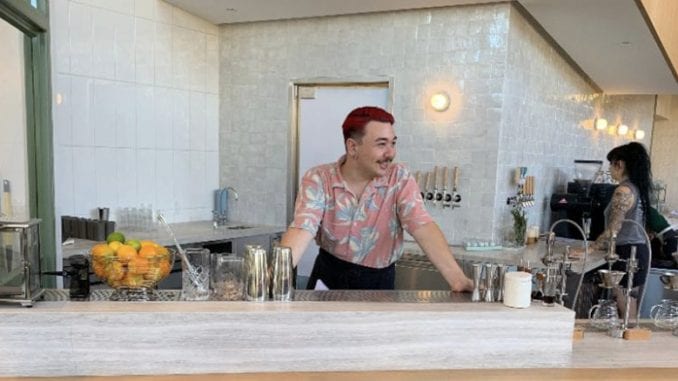
Nonbinary baristas, roasters, and café managers share their experience of coming out and being misgendered.
BY MARK VAN STREEFKERK
BARISTA MAGAZINE ONLINE
Cover photo courtesy of Joshua Agbayani
Recently, we’ve been taking a closer look at nonbinary experiences through specialty coffee in a three-part series at Barista Magazine Online. Part one addressed how nonbinary folks—those who don’t identify as solely male or female—feel valued in cafés, even if it’s “an imperfect experience,” as Phoenix Cerny shared. In today’s second part, we’re sharing advice to and from nonbinary coffee workers. Read on to hear what they have to say about coming out, and how they deal with being misgendered.
There’s no one way to come out in the workplace as nonbinary, transgender, or any stripe of LGBTQ+, for that matter. Some people only come out to certain friends or coworkers—or, in unsafe situations, not at all. Being nonbinary might be one part of a marginalized identity. Deandré Latrice, who identifies as agender and nonbinary, manages Intelligentsia Coffee in Boston. They point out, “There are specific struggles to not only being a nonbinary person in coffee, but a nonbinary person of color in coffee. Coffee—at least in Boston—is not only overwhelmingly ostracizing toward nonbinary folks, it is overwhelmingly white, especially as you move to the more artisanal coffee companies.”
“If one felt safe and willing to come out, I would say doing it in the interview is best, speaking from experience,” Deandré says. “For me, I often waited until after I was hired, sometimes even trained, and then had to learn it was not a safe space for me and start all over again. It made the whole process a lot more painful and stressful. Eventually I realized it made more sense for me to set my expectations from the beginning, and ask the questions I wanted to know off the bat.”
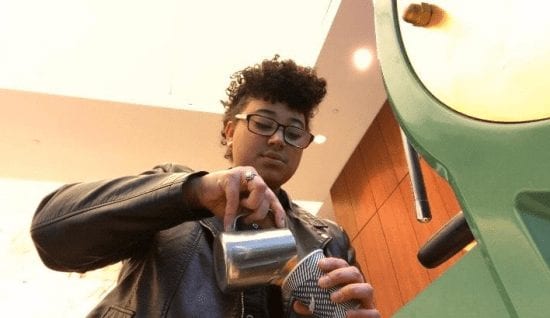
Christina Snyder, a barista and production roaster at Deeper Roots Coffee in Cincinnati, says, “I wouldn’t be able to work in a space where I wasn’t out, or where people didn’t respect my pronouns or had a problem with me being queer. As far as coming out goes, just do it. There’s an army of people that are going to be behind you, even if they’re not in person. It sounds kind of silly, but get your a** on Instagram, and start talking to people because this community is so wonderful and loving, and ready to be there.”
Coming out is one thing, but even if coworkers and management are supportive, getting misgendered—potentially all shift long by customers—is another challenge. Because service interactions are brief, having to explain pronouns to a stranger is often more effort than it’s worth.
“I do not take (misgendering by customers) personal because I do not know this person and I know who I am,” says Dandy Anderson, café manager at Stumptown Coffee Roasters in New York. “For me personally, correction is not part of that dynamic regarding those I view as strangers.”
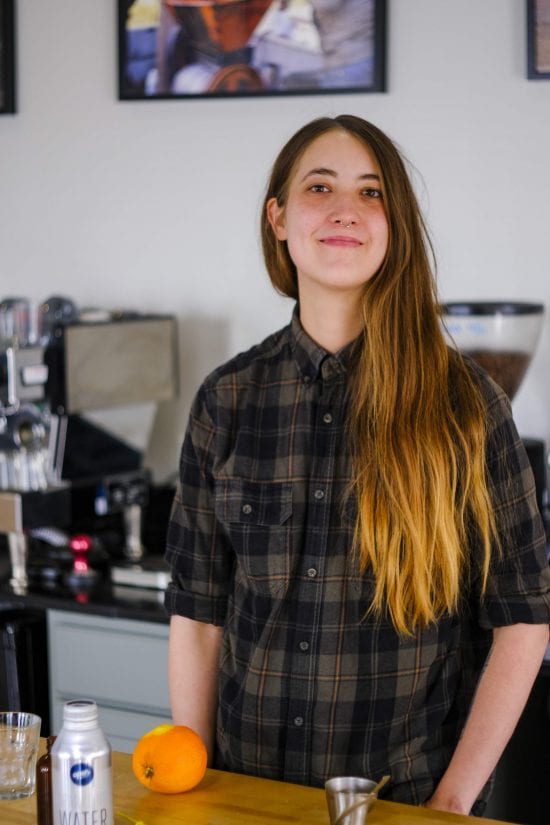
Christina says, “I’m still trying to figure out how to deal with the constant misgendering. But I think I take solace in understanding that it doesn’t really matter how the outside world might perceive my identity because I am wholly committed to it and understand it. I think that it’s taking those quiet moments to validate yourself and honor your own experience and remind yourself that it doesn’t matter. A random customer is not going to convince me that I’m a woman.”
For some gender-fluid nonbinary folks, like Joshua Agbayani of Verve Coffee Roasters, gendered language isn’t that big of a deal. “I oftentimes find myself being OK with people using any pronoun with me because I don’t feel a disconnect from either binary of gender. I just feel that both ends of the spectrum flow through me,” Joshua says.
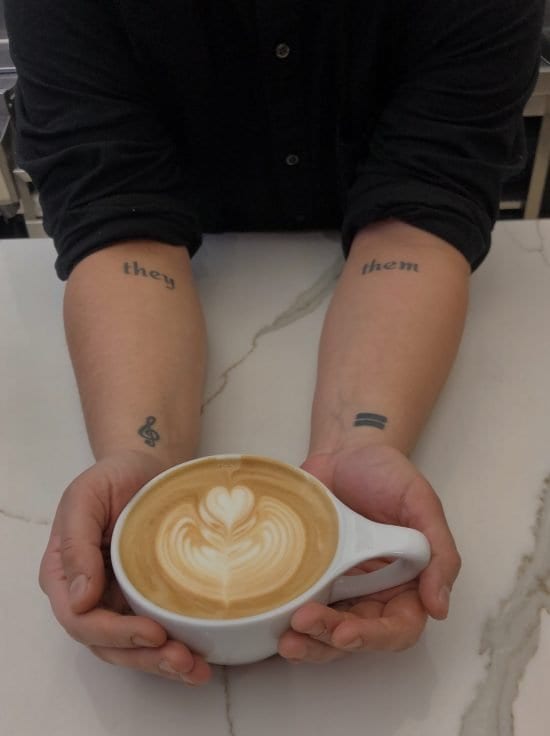
Deandré notes that while they don’t always correct customers who misgender them, having their peers respond with the right pronouns is a great way to correct misgendering. “If a customer uses the wrong pronoun for someone, the barista helping that customer should respond with the correct pronouns (i.e., a customer misgendering someone is not a reason to also misgender someone). Oftentimes, the guests don’t notice and the transaction moves along.”
Misgendering and coming out can be equally difficult situations to experience as a nonbinary coffee member, but all folks can agree that there are systems of support out there in our industry. Stay tuned for part three of this series to get more tips about how cafés can support their nonbinary workers.
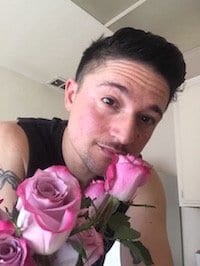
ABOUT THE AUTHOR
Mark Van Streefkerk is Barista Magazine’s social media content developer and a frequent contributor. He is also a freelance writer, social media manager, and novelist based out of Seattle. If Mark isn’t writing, he’s probably biking to his favorite vegan restaurant. Find out more on his website.
